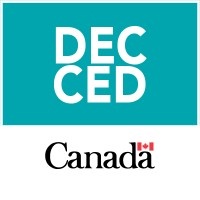
QEPD — Hurricane Fiona Recovery Fund - CED (QC)
At a glance
- No Condition
- Open Date : September 23, 2022
- Agriculture, forestry, fishing and hunting
- Arts, entertainment and recreation
- Other services (except public administration)
- Quebec
- Non-profit
- Public or Parapublic institution
- For-profit business
- All revenue ranges
- All organization sizes
- All groups
- Emergency and Relief
- Environment
- Economic, Social and Community Development
- Indigenous peoples
- Rural / Remote communities
- Business owners / entrepreneurs
- All structures
- Local
- Municipal
- Regional
Overview
If you are a SME in eastern Quebec (Gaspésie and Les Îles-de-la-Madeleine) directly affected by the storm you can access financing to address impacts from Hurricane Fiona not covered under other government and private sector measures.
Activities funded
This fund supports projects aimed at recovery and resilience-building for areas impacted by Hurricane Fiona. Eligible activities focus on cleanup, restoration, and enhancing future preparedness for natural disasters.
- Clean-up and renovations following flooding caused by Hurricane Fiona.
- Restoration of primary community and tourism assets, such as trail networks and seaside facilities.
- Acquisition of essential fishing and aquaculture equipment, including mussel seed and oyster cages.
- Planning activities to ensure climate resiliency of businesses and communities.
- Support from an organization to assess damages and develop recovery plans.
Eligibility
Eligibility for the Hurricane Fiona Recovery Fund is determined by specific requirements related to the applicant's profile and the impact of Hurricane Fiona.
- The applicant must be a small or medium-sized enterprise (SME), a non-profit organization (NPO), including economic development organizations and local economic development associations, a municipality, or an Indigenous organization.
- The applicant must demonstrate an immediate need with quantifiable losses or damage that are a direct result of Hurricane Fiona.
- The applicant must have exhausted all other sources of financial support, such as insurance and provincial relief programs.
- If the applicant is a public organization subject to the Loi sur le ministère du Conseil exécutif (M-30), they must have authorization from the Government of Quebec.
Who is eligible?
Eligible clients under the Hurricane Fiona Recovery Fund (HFRF) include small and medium-sized enterprises (SMEs), non-profit organizations (NPOs) such as economic development organizations providing essential services to SMEs and local economic development associations, municipalities, and Indigenous organizations.To be eligible, recipients must demonstrate an immediate need and quantifiable losses or damage resulting directly from Hurricane Fiona and must have exhausted all other financial support sources like insurance and provincial relief programs.Furthermore, public organizations subject to the Loi sur le ministère du Conseil exécutif (M-30) require authorization from the Government of Quebec.
Who is not eligible
There is no specific exclusion list provided in the context for the Hurricane Fiona Recovery Fund. The focus appears to be on supporting those directly impacted by the storm, without explicit mention of ineligible industries or company statuses.
Eligible expenses
The grant supports recovery efforts and restoration of economic activities for SMEs and communities affected by Hurricane Fiona. The eligible projects focus on clean-up, restoration, acquisition of essential equipment, and planning for climate resiliency.
- Clean-up and renovations following flooding caused by Hurricane Fiona.
- Restoration of primary community and tourism assets, such as bathing/seaside facilities and trail networks.
- Acquisition of fishing and aquaculture equipment, including mussel seed and oyster cages.
- Planning activities to ensure the climate resiliency of businesses and communities.
- Support from organizations to understand the extent of damages and develop recovery plans.
Eligible geographic areas
The eligible geographical areas for the Hurricane Fiona Recovery Fund include regions specifically impacted by the storm. This is to ensure that support is directed towards areas most in need of recovery assistance.
- Eastern Quebec
- Gaspésie
- Les Îles-de-la-Madeleine
Selection criteria
The Hurricane Fiona Recovery Fund (HFRF) has evaluation and selection criteria that include demonstrating quantifiable losses or damage directly resulting from Hurricane Fiona, having an immediate need, exhausting other sources of financial support, and being an eligible entity.
- Demonstrate quantifiable losses or damage due to Hurricane Fiona.
- Have an immediate need for funding.
- Exhaust all other sources of financial support, such as insurance and provincial relief programs.
- Be an eligible entity, including SMEs, NPOs, municipalities, and Indigenous organizations.
How to apply
Check eligibility and immediate need
- Ensure that the organization meets the eligibility criteria
- Demonstrate the quantifiable losses or damages caused by Hurricane Fiona
Exhaust other financial support options.
Prepare the project proposal
- Detail the costs of recovery and restoration efforts
- Show how the project aligns with the fund's objectives
Submit the request
Additional information
Here are additional relevant details for this grant:
- All funds available for the Hurricane Fiona Recovery Fund have already been allocated, and no new applications are being accepted.
- The fund is valued at $300 million and was established by the Government of Canada.
- Eligible costs are retroactive to September 23, 2022, allowing recipients to claim costs from the time of the incident onwards.
- The fund is part of the Quebec Economic Development Program (QEDP).
- The fund will remain in effect until March 31, 2025, but no new applications can be submitted.
Frequently Asked Questions about the QEPD — Hurricane Fiona Recovery Fund - CED (QC) Program
What is the QEPD — Hurricane Fiona Recovery Fund - CED (QC)?
How much funding can be received?
What expenses are eligible under QEPD — Hurricane Fiona Recovery Fund - CED (QC)?
What is the deadline to apply?
Is the QEPD — Hurricane Fiona Recovery Fund - CED (QC) a grant, loan, or tax credit?
Who are the financial supporters of the QEPD — Hurricane Fiona Recovery Fund - CED (QC)?
Who is eligible for the QEPD — Hurricane Fiona Recovery Fund - CED (QC) program?
Who can I contact for more information about the QEPD — Hurricane Fiona Recovery Fund - CED (QC)?
Where is the QEPD — Hurricane Fiona Recovery Fund - CED (QC) available?
More programs like this

Support for biofood exports - individual projects
Ministry of Agriculture, Fisheries and Food (MAPAQ)
ÉcoPerformance — Recommissioning of building mechanical systems
Gouvernement du Québec
Program to support the development of agriculture and agri-food in the regions
Ministry of Agriculture, Fisheries and Food (MAPAQ)
Program Supporting the Development of Tourist Attractions — Stream 1
Investissement Québec (IQ)
Efficient Solutions Program — Agricultural Component
Hydro-Québec
PADAAR — Measure 4021 – Promotion of regional products
Ministry of Agriculture, Fisheries and Food (MAPAQ)
AgroPerformance – Stream 1 : Support for the agricultural sector in adopting agritechnologies
Gouvernement du Québec
Call for projects to combat homophobia and transphobia
Gouvernement du Québec
Innovative Projects Program
Hydro-Québec